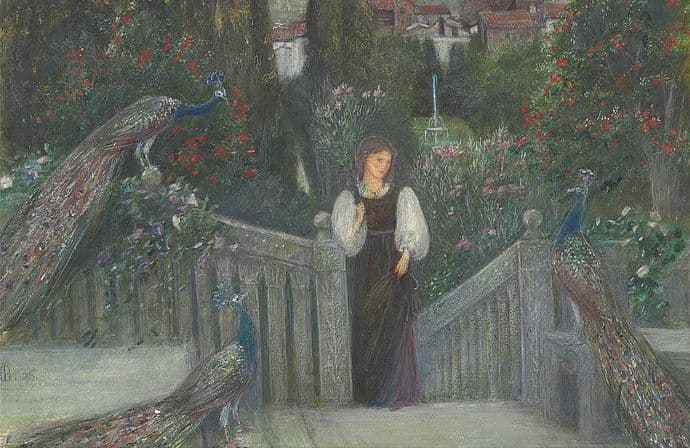Poem of the Day: ‘The Lost Bird’
Like much of Coronado’s poetry, devoted to impossible infatuations, this poem laments the loss of a mythical-seeming bird, less pet than lover.

The first of the American Romantics, author of such poems as “Thanatopsis” and “March,” which appeared as the Sun’s Poem of the Day on the second of that month this year, William Cullen Bryant (1794–1878) was also prolific as a translator. At the age of ten he was producing “very credible” translations of the Latin poets and publishing these translations in the local newspaper, the Northampton Hampshire Gazette. Before his fifteenth birthday, under the tutelage of a clergyman uncle, he had translated Virgil’s “Aeneid.”
Late in his life, he turned his hand to Homer, producing English blank-verse translations of “The Iliad” and “The Odyssey.” In the intervening years, as he moved from position to position in an ongoing struggle to support his family, he acquired both friends and languages: French, honed in a period boarding with the Everard family in New York, and Spanish, which he cultivated alongside a friendship with the Cuban poet José Maria Hérédia.
Bryant’s acquisition of Spanish meant the introduction of Spanish-language poets to American readers. Among them was the Spanish poet, novelist, and dramatist Victoria Carolina Coronado y Romero de Tejada (1820–1911). Self-educated, she began as a young woman to compose emotionally intense love poems, many of them dedicated to a husband, Alberto Tejada, whose actual existence is a matter of some dispute. At any rate, it was not until 1852, following the possibly imaginary Alberto’s death at sea, that Coronado married Horatius Justus Perry, secretary to the American embassy in Madrid.
Carolina Coronado met Bryant during the latter poet’s travels in Europe. One result of their friendship was Bryant’s translation of Coronado’s “El pájaro perdido,” appearing as today’s Poem of the Day under its English title, “The Lost Bird.” In English, as in the Spanish original, the poem appears in five-line stanzas of shifting trimeter and pentameter, with an ababb rhyme scheme.
Like much of Coronado’s poetry, devoted to impossible infatuations, this poem laments the loss of a mythical-seeming bird, less pet than lover. “Find him,” the speaker implores her reader — “Find him, but do not dwell / With eyes too fond, on the fair form you see.” Such a beautiful bird, she says, is something that you might be tempted to keep. But no. “Send him, at once, to me, / Or leave him to the air and liberty.”
The Lost Bird
by Carolina Coronado (translated by William Cullen Bryant)
My bird has flown away,
Far out of sight has flown, I know not where.
Look in your lawn, I pray,
Ye maidens, kind and fair,
And see if my beloved bird be there.
His eyes are full of light;
The eagle of the rock has such an eye;
And plumes, exceeding bright,
Round his smooth temples lie,
And sweet his voice and tender as a sigh.
Look where the grass is gay
With summer blossoms, haply there he cowers;
And search, from spray to spray,
The leafy laurel-bowers,
For well he loves the laurels and the flowers.
Find him, but do not dwell,
With eyes too fond, on the fair form you see,
Nor love his song too well;
Send him, at once, to me,
Or leave him to the air and liberty.
For only from my hand
He takes the seed into his golden beak,
And all unwiped shall stand
The tears that wet my cheek,
Till I have found the wanderer I seek.
My sight is darkened o’er,
Whene’er I miss his eyes, which are my day,
And when I hear no more
The music of his lay,
My heart in utter sadness faints away.
___________________________________________
With “Poem of the Day,” The New York Sun offers a daily portion of verse selected by Joseph Bottum with the help of the North Carolina poet Sally Thomas, the Sun’s associate poetry editor. Tied to the day, or the season, or just individual taste, the poems are drawn from the deep traditions of English verse: the great work of the past and the living poets who keep those traditions alive. The goal is always to show that poetry can still serve as a delight to the ear, an instruction to the mind, and a tonic for the soul.
